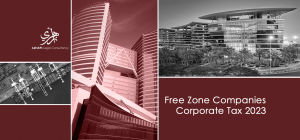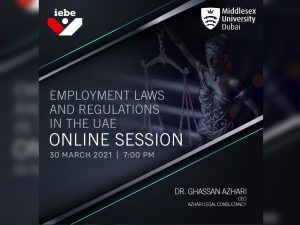Probation, Notice Period & Termination:
Under UAE Labour Law, the employee and employer can agree on a probation for a period not exceeding six (6) months, during which the employer may terminate the employment without notice or end of service benefits. Furthermore, and upon successfully completing the probation period, the required notice period to be given by the employee or the employer to terminate the employment shall be between one (1) to three (3) months.
In the event of termination by either the employer or employee, certain obligations apply to the terminating party, given the nature of the agreement – i.e. limited and unlimited, in terms of end of service benefits and payments in lieu of notice periods.
DIFC Employment Law, on the other hand, does not expressly mention any probation period per se. However, when an employee has been employed for more than one (1) month, the notice required to be given by the employer or the employee to terminate the employment, cannot be less than:
- one (1) week, if the period of continuous employment is less than 3 months;
- one (1) month, if the period of continuous employment more than 3 months but less than 5 years; or
- three (3) months, if the period of continuous employment is 5 years or more.
Furthermore, under DIFC Employment Law, parties can agree on longer or shorter period of notice or even waiving notice or accepting a payment in lieu of notice.
DIFC Employment Law, does not distinguish between a limited or unlimited employment agreement, and terminating an agreement is generally governed by the terms of the agreement, subject to notice period requirement and other obligations defined by DIFC Employment Law.
Vacation/Annual Leave:
UAE Labour Law grants employees, who have been continuously employed for more than six (6) months, a period of annual leave of two (2) days per month, starting from the first day of employment, where the employment has been less than one (1) year and thirty (30) days per year where the employment has been more than one (1) year. Under UAE Labour Law, all national holidays made by law or agreement, weekends and/or sick days, if any, will be part of the annual leave if such days fall within the period of annual leave.
DIFC Employment Law, on the other hand, grants vacation leave of twenty (20) working days per year to the employees who have been employed for at least three (3) months. Furthermore, the annual vacation leave is exclusive of national holidays, weekends, maternity leave and sick leave or any other days of absence from work as agreed between the parties.
Sick Leave:
Under UAE Labour Law, no sick leave is given to an employee during probation period and only after three (3) months into the continuous employment following the probation period, the employee is entitled to ninety (90) days of sick leave per year. Furthermore, the employee is entitled to full paid sick leave for the first fifteen (15) days with full pay. The employee is entitled to half day payment for following thirty (30) days of sick leave and the remaining forty five (45) days of allowed sick leave per year are non-paid.
On the other hand, under DIFC Employment Law, an employee is entitled to a maximum of sixty (60) working days in aggregate per year. Please note that, the employee is entitled to be paid at the rate of normal daily wage for the entire period of sick leave.
Please note that, where an employee takes more than an aggregate of sixty (60) working days of sick leave in any twelve (12) month period, the employer may terminate the employment immediately with written notice to the employee.
Maternity:
Under UAE Labour Law, an employee is entitled to full paid maternity leave for a period of forty five (45) days per year if she has been continuously employed for at least one (1) year. If an employee has been continuously employed for less than one (1) year, her paid maternity leave will be reduced by half. Please note that, UAE Labour law, allows an employee to take longer maternity leave, due to complications of pregnancy or delivery, beyond forty five (45) days for a maximum period of hundred (100) continuous or intermittent days without pay.
UAE Labour Law, does not recognize, up until now, maternity rights to a female employee who is adopting a child.
By contrast, DIFC Employment Law grants maternity rights to an employee who is adopting a child of less than three (3) months old.
A DIFC employee is entitled to a minimum maternity leave of sixty five (65) working days. Furthermore, an employee is entitled to be paid during the minimum maternity leave if she has been continuously employed for at least one (1) year prior to the expected or actual week of childbirth.
The maternity pay, under DIFC Employment Law, is calculated as follows:
- normal daily wage for the first thirty three (33) working days of maternity leave; and
- fifty (50) per cent of the employee’s normal daily wage for the next thirty-two (32) working days of maternity leave.
End of Service Gratuity:
Generally, under both DIFC Employment and UAE Labour Laws, an employee who has been continuously employed for a minimum of one (1) year, is entitled to gratuity payment at the termination of the employment. Both Laws calculate the payment of gratuity in the same manner, i.e. the gratuity shall be 21 days’ basic wage for each year of the first five years of service and 30 days’ basic wage for each additional year of service provided that the total of the gratuity shall not exceed the wages of years of service. However, under UAE Labour Law, in the event of a resignation by the employee, the amount of gratuity will be significantly reduced, if the continuous period of service does not exceed five years.









